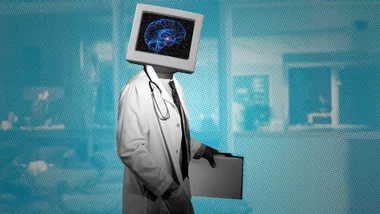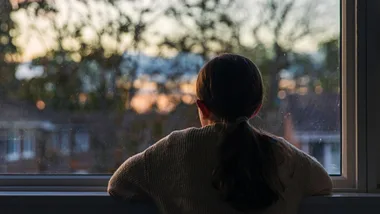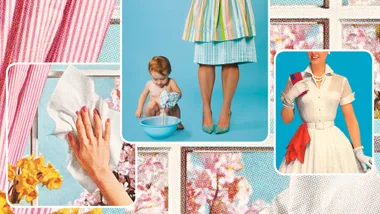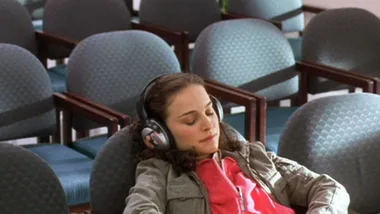My husband has just dropped me off and I can’t stop crying. The lady checking me in hands me tissues while gently talking me through the paperwork. She’s seen all this before. I can’t believe I won’t see my family for three weeks. I’ll be cut off from all contact: no WiFi, no news, no emails. For someone with a media website and a very active social presence, this is terrifying.
I’m at a treatment centre that specialises in addictions and mood disorders, but once you take the elevator up to level one and pass the nurses’ station with its blood-pressure monitors, it’s pretty clear this is a hospital. I wheel my suitcase past a queue of patients lining up to get their meds from the glass-walled dispensary. They’re laughing and joking and a few of them smile at me sympathetically. It feels more like boarding school than a scene from One Flew Over the Cuckoo’s Nest.
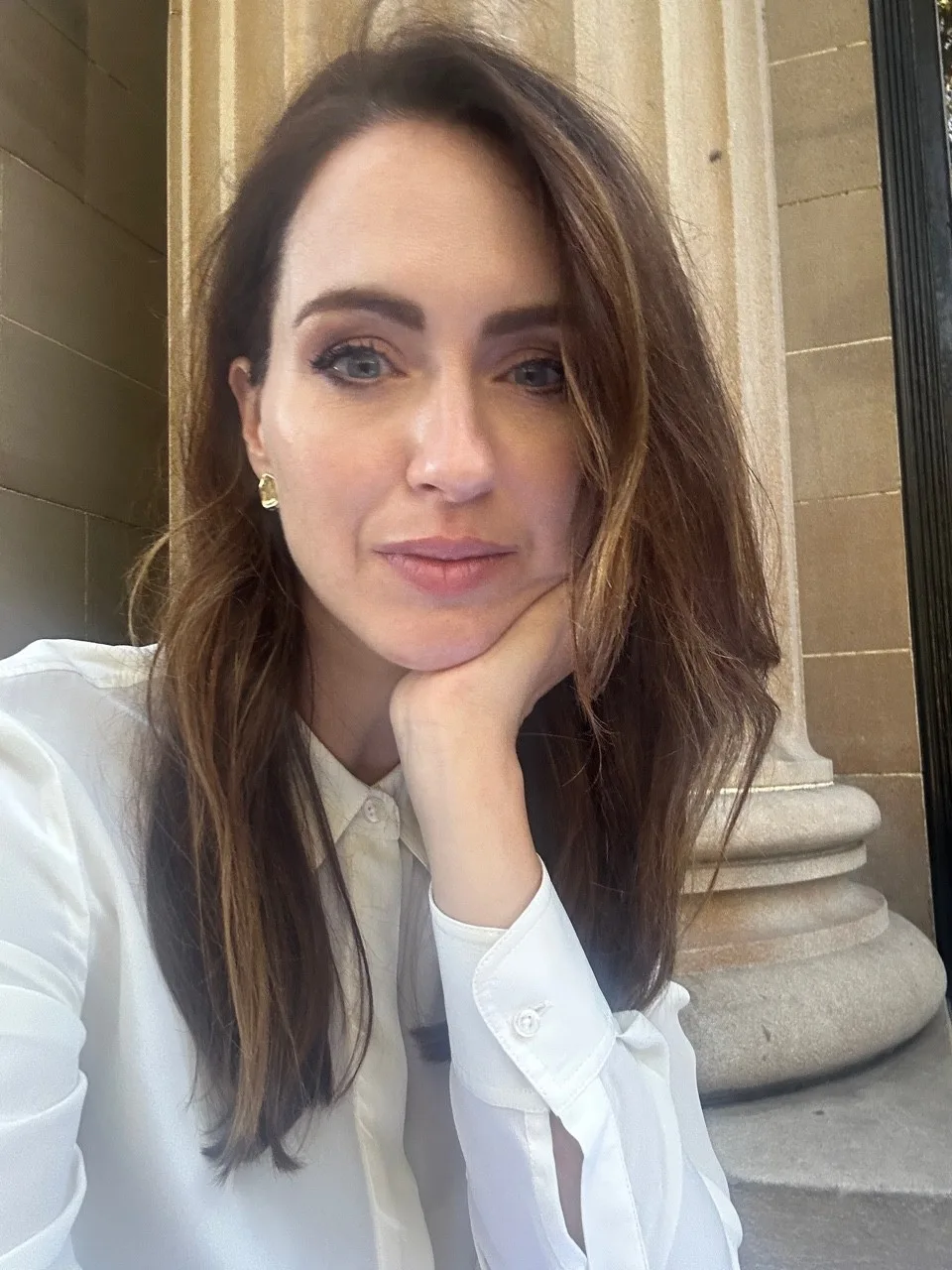
The Day I Checked Into A Treatment Centre For Depression And Anxiety
As I wait to see the doctor, a woman in her fifties comes up to me. “First day?” I nod and try to smile at her. “Don’t worry, it’s like this for everyone, but you’ll soon be wrapped up in a great big bubble of love. You’ll feel a lot better very quickly.” After a series of tests and a lot of questions, a nurse takes me into my room and asks me to unpack. He dons gloves and deftly checks my belongings for contraband.
As you would expect, he’s on the lookout for alcohol, drugs, medication and vapes, but he will also confiscate any laptops, phones, smart watches, lollies or exercise equipment. Also out are hair dryers, nail scissors and cosmetics in glass bottles, as they pose a risk to those with self-harm tendencies. Tight or revealing clothing is also banned as it can trigger those with a sex addiction. Even novels aren’t allowed – only self-help books. Clients are not permitted to exercise excessively, except for optional morning yoga sessions, walks or ocean wades (where we’re watched to ensure we don’t sneak in any vigorous swimming).
Essentially, anything that people might use to escape or numb their feelings is banned because the doctors want us to feel all the feels that we’ve been pushing away. Most of the people here have spent a lifetime numbing their pain with drugs, alcohol, shopping, sex, work or exercise, and I am here for three weeks to do the work to unearth emotions I’ve tried to bury.
Why I Decided To Seek Help For Anxiety And Depression
By some miracle I’ve ended up in a private room with a toilet I share with one other person. This is rare and I’ll soon be moved into a shared room, but it feels like a blessing to have my own space while I deal with the enormity of my situation. I curl up with the toy bunny my daughter gave me and sob. I don’t stop crying for two days and I leave a trail of tissues in my wake.
Contrary to how it sounds, my decision to check myself into the treatment centre didn’t stem from a colossal breakdown. My problem was a slow burn. I was functioning pretty well day-to-day, showing up on social media with a smile on my face, but inside I was crumbling. I’d had some health issues – chronic neck and shoulder pain.
My neck would go out and I’d end up bedridden or in a neck brace. It seemed to flare up during times of stress. I was also suffering from debilitating reflux that would wake me in the night with pain and nausea. After failing to find a definitive diagnosis I began to wonder how much these issues had to do with stress and anxiety. But why?
Work was stressful, sure, but it was the parenting that was seriously getting me down. It seemed to trigger me, bringing back painful memories from my childhood. As I researched parenting and emotions coaching, I realised I would struggle to give my son the help he needed to navigate adolescence.
I would listen to parenting books in the car and sob for the whole drive because I felt like I’d failed him as a parent. I started to pull back from social events. When I wasn’t working or looking after the kids, I just wanted to be in bed. And yes, I cried a lot. I realised I was depressed and took myself to a psychologist who told me I had significant childhood trauma that I needed to work through.

What Led To My Breakdown
I had never really thought of my childhood as traumatic. I’m very aware of my privilege and luck to be born in a safe and financially secure place. But as an only child I really suffered in the slipstream of my parents’ bitter divorce. It was a very unhappy time and I often felt helpless and alone. Now as a mother, I felt that what I went through as a kid was getting in the way of being the parent I wanted to be. The psychologist told me I could either do a lot of therapy or – and this shocked me – I could consider an inpatient stay, somewhere like South Pacific Private, which he thought would be better because it would help me do group therapy.
I stalked the website but wasn’t convinced I was the right candidate for such a big step. I didn’t see myself as a trauma victim or having a mood disorder. I wasn’t an addict nor had I hit “rock bottom”. I was worried they’d laugh me out of there. After I filled out a quiz on the website, the intake staff called me and suggested I have an evaluation. I told my story to their consulting psychiatrist, who also told me I had trauma. He said, “Sigourney, if there’s any way you can make this happen, it will change your life.” He said it with such conviction I couldn’t ignore it.
I grappled with the decision for weeks. I spoke to a friend who had been raved about it, and I found out that it’s the only hospital in the country that offers such extensive programs for childhood trauma. It also offers outpatient courses so you can continue your work in a group-therapy setting. Many reviews gushed of life-changing experiences. I felt terribly guilty about leaving my kids, but my husband and family encouraged me to do the healing that I needed. As D-day approached, I frantically prescheduled a whole lot of content for work and told anyone who pressed me that I was going to a health retreat. In my head, I was calling it a mental health retreat.
The First Morning At A Treatment Centre
And so here I am at the first morning meeting feeling thoroughly intimidated. We go around the room, all 60 of us, and say our “names, claims and feelings”. Like in an AA meeting, you have to claim your diagnosis: “I’m Sigourney, I’m recovering from anxiety and childhood trauma, and today I’m feeling … terrified.”
There are meth addicts and sex addicts, alcoholics, workaholics and people with depression. But the mood in the room is high. It is electric. There are cheers for people celebrating their first day, hugs and chants for people in their first week and applause for those marking second-week milestones; those who are graduating after three weeks are clearly loved and supported thoroughly by the group.
People stand and make impromptu speeches about how the staff or fellow patients have supported them or made their stay special. I can see how incredible the staff are. By day two I stop crying and by day five I start to feel alive again.
The days are long and busy. We rise early for yoga or a walk, there are daily lectures on psychology, mental health and self-care, and the sessions with my primary group make them seem like a mini family. Evenings are spent doing homework for “group”, which involves confronting emotional demons and dredging up painful memories.
Reliving past hurts with each other’s support validates our pain. Gradually, as the days pass, I feel a sense of peace descend. I start to understand what I went through as a child and why I was so triggered as a parent.
The Power Of Connection
We have a movie on Saturday nights and weekly trivia nights, which are raucous and hysterical. We play Wordle on the whiteboard, there’s ping pong and we have singalongs around the piano. There are so many amazing moments of connection and friendship. It’s beautiful seeing the people with substance-abuse disorders coming back to life in week two: the sparkle returning to their eyes and the colour to their skin.
People with depression begin to smile and laugh. Being phoneless is a shock at first but I soon feel a sense of freedom I haven’t experienced since childhood.
By the time week three rolls around and I graduate, I am stronger. In therapy I have released some of the anger and pain I have carried since childhood and I’m starting to challenge some unhelpful beliefs I have about myself. Most of all I feel grateful that I’ve been able to take time out to do such intense inner work.
When I finally see my kids again, I am a different person, much closer to the type of mum I want to be.
How I Feel Three Months After Treatment
Three months on and I’m still feeling strong. I was also diagnosed with ADHD when I got out, which is a whole other story but I’m so glad I’m starting to understand my brain better. I’m a work in progress, but that amount of therapy would have been hard to get done in the real world (not to mention expensive and time-consuming). The stay, worth around $17,000, was covered entirely by my health insurance company.
I’m still so grateful that my family pulled together to give me the opportunity to face my demons. I’ve mostly stayed off alcohol because I found it was a big factor in my anxiety and was getting in the way of my sleep. I don’t want to muddy the waters as I do this work and I want to be in the best head space to help the kids navigate their emotions as they grow.
So much trauma is multi-generational and many of us get locked into cycles of behaviour based on negative self-beliefs that stem from childhood. I was lucky to have someone point out the distress lurking deep within me that was responsible for my anxiety and parenting issues, and now I want to open up conversations around this. It’s led me to start a podcast called Beautiful Inside, in which I talk to women about their mental-health journeys and discuss the psychology of beauty and self-care.
I want to show people they’re not alone in their struggles and, at the end of the day, we all need to have so much more self-compassion. There’s no such thing as a perfect parent or childhood. It’s the imperfections that help us find beauty and meaning. Our therapist Nicola, reminded us of a Leonard Cohen quote: “Forget your perfect offering. There is a crack, a crack in everything. That’s how the light gets in.”
Listen to the Beautiful Inside by Beauticate podcast here

